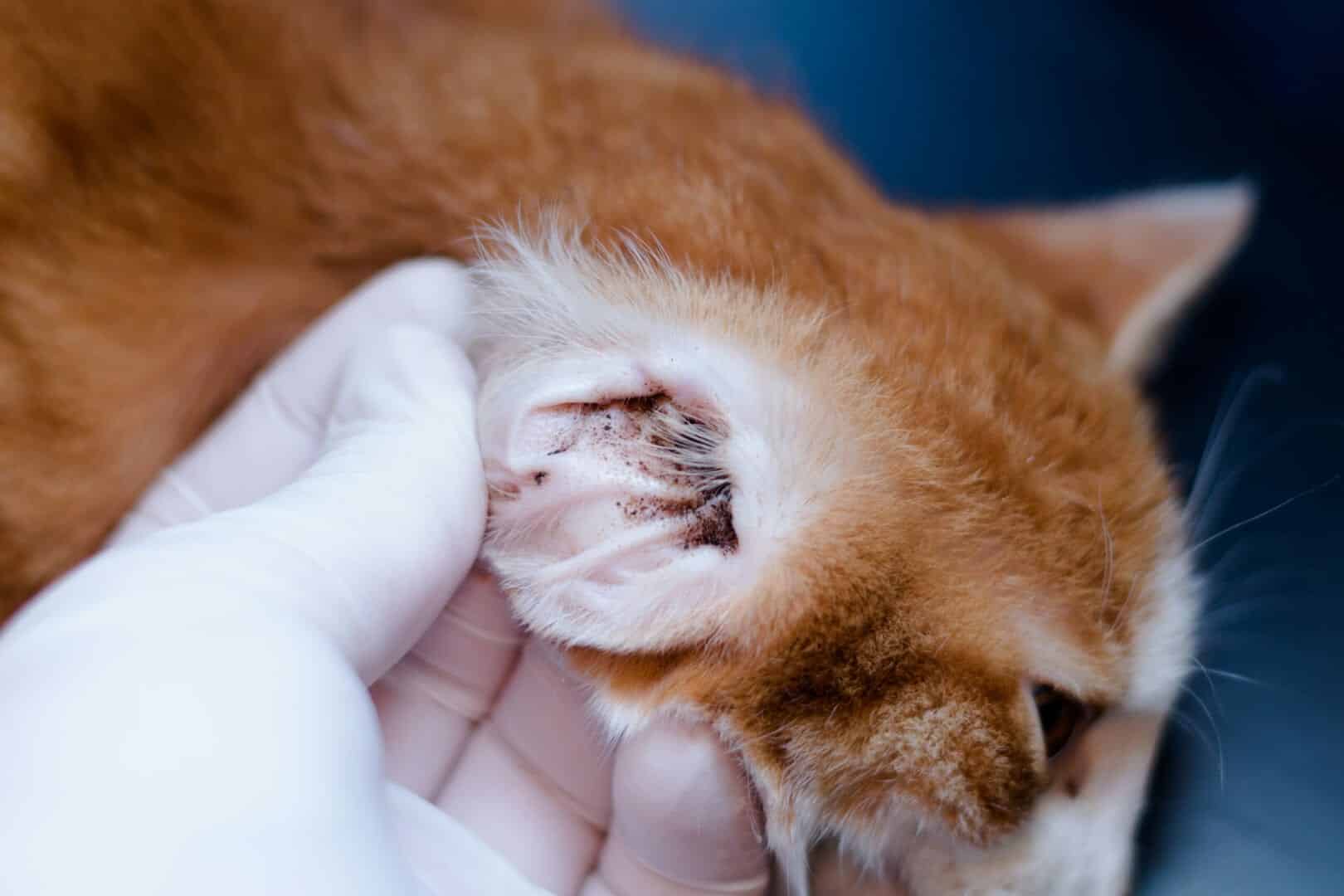We don’t know why exactly it happens, but food allergies in cats are a relatively common issue. Like any other type of allergy, whether in humans or animals, a feline food allergy occurs when the immune system overreacts to a specific protein found in their food. The physical response can range from mild to severe, but regardless of symptoms, a regularly occurring allergic reaction lowers a cat’s quality of life. This is why it’s important to recognize the signs that a cat has food allergies and to work toward a long-term solution. Every cat, regardless of age, health, breed, or diet, can potentially develop an allergy at any point in their life.
If you’ve noticed your cat showing concerning physical symptoms, their food could be the culprit. Read through the following list of symptoms to help determine if your cat has food allergies.
Chronic Itching
The most common symptom of food allergies in cats is year-round scratching and skin inflammation. Hot spots are usually the face, belly, armpits, ears, and paws, but the inflammation could should up anywhere on your cat’s body. Unlike other issues, like fleas, you won’t be able to see an obvious reason for the itching simply by looking at your cat’s skin. If the issue goes on for long enough, most cats resort to over grooming in attempts to find relief. This can lead to hair loss or wounds that develop into infections.
Regular Ear and Skin Infections
If constant itching doesn’t tip you off that your cat has food allergies, it could be frequent infections. Ear infections are the most common infections related to allergens. They’re identified by obvious debris in the ear, foul odor, and redness. They can also be extremely painful, so your cat might shake their head or paw at their ear more than usual. Regular skin infections on other areas of the body also point to food allergies.
Vomiting or Diarrhea
Cats with food allergies may also suffer from frequent bouts of vomiting, diarrhea, and other gastrointestinal symptoms. They might not have an episode after every meal, but vomiting or having loose stools a few times every week is cause for concern. Some cats also show their discomfort by excessively licking around their rectum or scooting.
The Next Steps
If you can confirm that your cat suffers from one or more of these symptoms of allergic reactions, the next step is always to talk to a vet. Diagnosing food allergies in cats is difficult. The most likely recommended route will be to conduct what’s called a food trial for 6-8 weeks. This involves completely changing a cat’s diet and putting them on a food that doesn’t include any of the proteins that were apparent in their old food. This could be through a home-cooked novel protein diet or a commercial novel protein diet.
If your cat’s symptoms disappear during the weeks of the food trial, there’s a strong possibility it was a food allergy causing the problem. Your vet will then recommend a food challenge to individually test the different proteins in the old food in an attempt to pinpoint the exact allergy.
Is There a Cure?
Unfortunately, diagnosing a cat with food allergies isn’t an exact science. And even if you are able to determine the specific protein causing the reaction, there is no cure. Instead, cat owners can manage food allergies by completely avoiding the problem protein in both the cat’s regular food and treats. Once you and your cat settle on appropriate diet restrictions, you’ll most likely have to keep it up for the rest of the cat’s life. You should also keep in mind that it’s possible for cats to develop new allergies at any time.
The good news is, cats with food allergies can continue to live long, healthy lives. Don’t hesitate to talk to your vet about your concerns.






